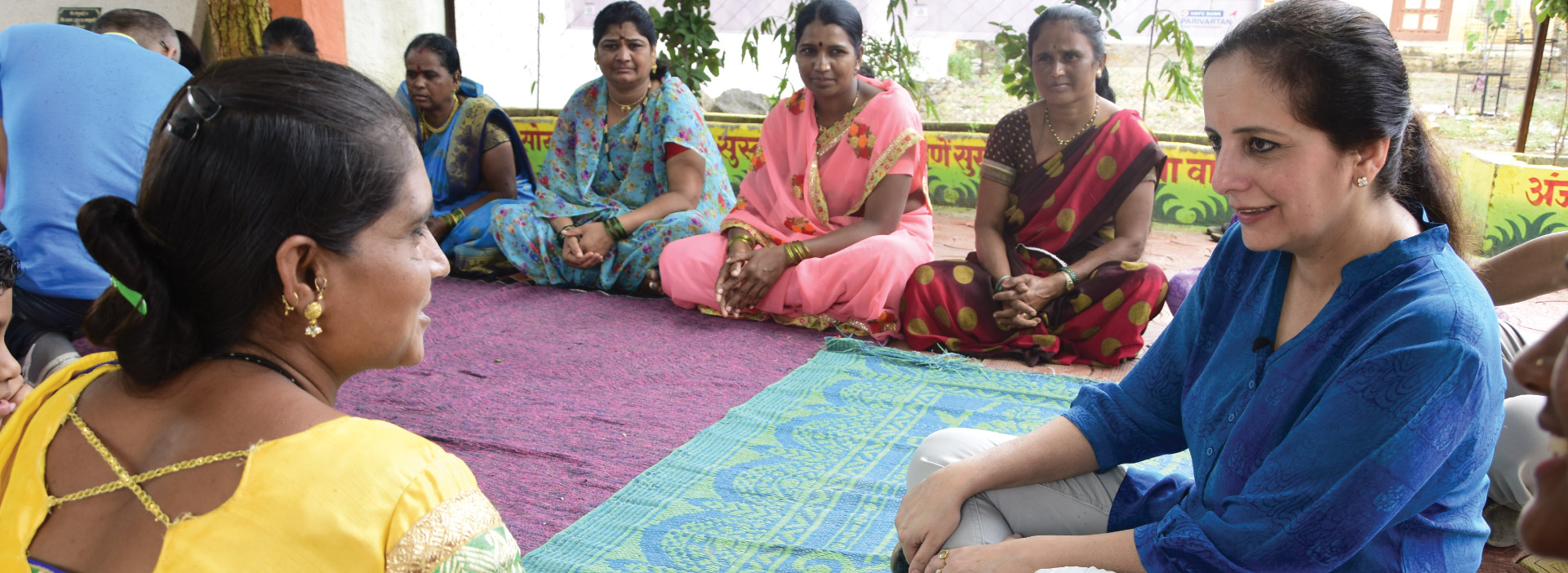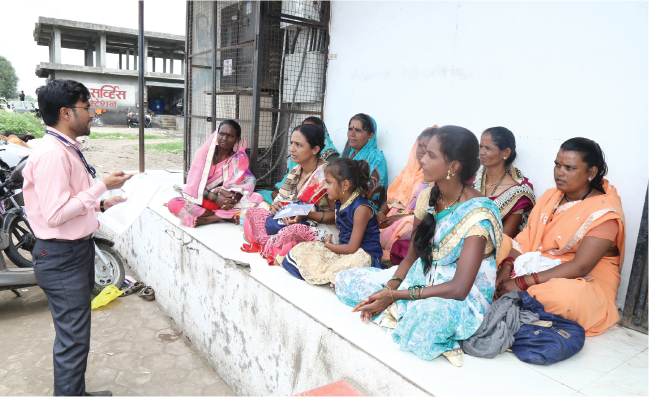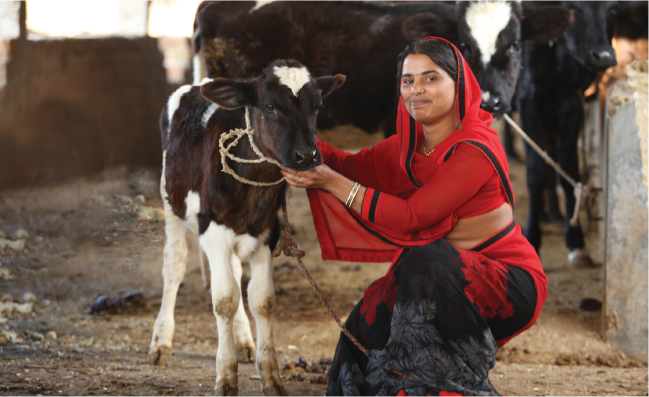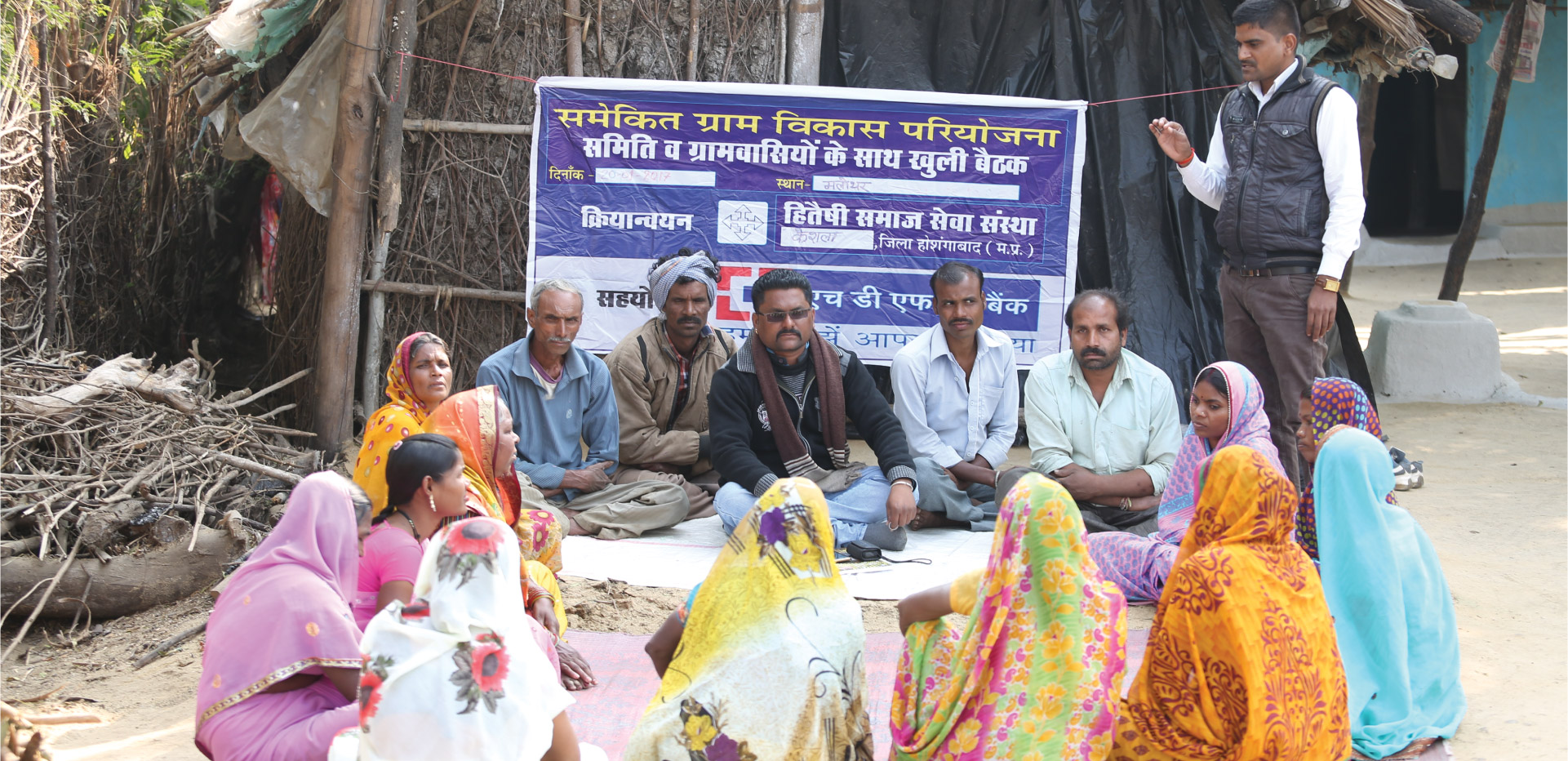
In India, millions of people are excluded from the formal economy and are thus deprived of its benefits. Communities cannot progress and interact with the world at large, without basic financial literacy and inclusion. Financial inclusion is the need of the hour and the Bank strives to cater to the unbanked and under-banked population in rural, semi-urban and urban India. We have considered it our responsibility to spread financial awareness, by conducting workshops to empower the marginalised sections of the society. As on FY 2018-19, the initiative saw more than 8.1 million participants benefit through workshops held at literacy camps and banking outlets.

A. Flagship Project- Digidhan or Dhanchayat
Digidhan or Dhanchayat is a multi-pronged programme where literacy is imparted at branches, through Business Units as well as through its NGO partners. The Bank explains the benefits of digital banking through the medium of films. The financial literacy program is a literacy-on-wheels programme that is spread across the length and breadth of the country. Dhanchayat vans are equipped with micro-ATMs and biometric facility which enable instant e-KYC and Re-KYC using Aadhar Card while visiting the villages.

B. Multifunctional Terminals or Milk-to-Money ATMs
Multi-function Terminals (MFTs), popularly known as Milk-to-Money ATMs (MTMs) bring transparency in the milk procurement and payment process. The MFT, like a standard ATM, contains a cash dispenser that facilitates quick access to payments which greatly benefits many dairy farmers. The MFT also assists farmers in building their credit history, thereby allowing them to enjoy the benefits of mainstream financial services. Payments are credited without the difficulties associated with the cash distribution process. The Bank has digitized payments at over 1,000 milk co-operatives spread over 18 states benefiting more than 4 lakh dairy farmers. The Bank facilitates instant realization of payments for over 1 lakh customers.
Kala and her husband used to run a traditional weaving business, their son joined later. Despite having an electronic weaving machines and three working members they were unable to make enough money for their family. This was primarily due to a localized market. The initiatives provided them with credit counselling and a loan of ₹ 25,000 which they used to meet the high import demands of a non-local shop. Today the family is not only making a comfortable living, but they have been able to invest in a recurring deposit for their future
Parivartan Grants to 25 social sector startups
Parivartan Grant aims to help startups working in the social sector to offer unique solutions that bring a sustainable change. In the first phase, the Bank has disbursed ₹ 10 crore to startups and incubators in India.
The Bank has funded start-ups in the following areas :
Parivartan, which means change is the Bank’s quest to bring a sustainable change in the society. The Bank is not only conducting CSR activities but also encouraging the entrepreneurial eco-system in India to create long term solutions to social problems.Beyond CSR, the Bank is keen on encouraging the entrepreneurial eco-system in India to create long term solutions to social problems.Parivartan Grants have been offered to startups based in Mumbai, Pune and Delhi, Jamshedpur, Kalahandi in Odisha, Kochi, Thiruvanathapuram, Hyderabad to name a few.Some of the Start-ups chosen by the Bank are Zoofresh – which works in the fish and meat industry in eastern India by creating an integrated aggregation and distribution model, with farms, farmer network and state of the art FSSAI certified urban retail outlets. Banyan Nation – which is India’s first vertically integrated plastic recycling companies that helps global brands use more recycled plastic instead of virgin plastic. Reimagined is another startup supported by the Bank it offers wide range of products created from different types of waste. This initiative helps the Bank to contribute towards SDG 1 – No Poverty, SDG 3 – Good Health and Well-being, SDG 6 – Clean Water and Sanitation, SDG 7 - Affordable and Clean Energy and SDG 8 – Decent Work and Economic Growth.

For any queries or questions
regarding the report or its contents,
contact:
Nusrat Pathan
Head, Sustainability & Corporate Social Responsibility
HDFC Bank Limited
[email protected]
All Rights Reserved.
